Case Study: Health Carousel
Introducing you to the platform that centralized the entire onboarding and compliance system for Health Carousel
Read moreA new white paper exploring how independent healthcare providers can modernize practising privileges governance to achieve continuous compliance and audit readiness.
Read moreStruggling to keep up with compliance, staffing, and audits? Discover how centralized reporting gives behavioral health leaders real-time visibility to prevent problems before they happen.
Read moreExplore how NHS trusts can cut onboarding delays, reduce agency spend, and improve CQC readiness. This whitepaper shows how digital-first credentialing unlocks faster, safer workforce deployment across the NHS.
Read moreThe UK’s private healthcare sector is navigating a period of rapid change. Demand for services is rising at an unprecedented pace, fuelled by record NHS waiting times and changing patient expectations
Read moreA practical guide for healthcare recruiters on the 10 KPIs that matter most. Learn benchmarks, frameworks, and strategies to cut drop-offs, speed credentialing, boost compliance, and prove ROI with data.
Read moreThe NHS 10-Year Health Plan, published in July 2025, marks a pivotal shift in how care is delivered, managed, and governed. With the service under intense pressure to improve outcomes while reducing costs, the plan lays out three key transitions.
Read moreDoes onboarding new staff in your care service feel like herding cats through a maze of paperwork? If managing recruitment and compliance in social care often seems chaotic, you’re not alone.
Read moreThe NHS exists to provide timely, high-quality care to patients. Yet one of the biggest barriers to meeting patient needs today is not a lack of medical breakthroughs or funding per se; it’s the lack of staff.
Read moreA new white paper designed to help behavioral health organizations navigate the growing pressures of compliance, staffing, and audit readiness.
Read moreSelecting a credentialing software is a big decision for any healthcare COO or IT procurement lead. The right platform can supercharge your telehealth team’s efficiency and compliance; the wrong one can become an expensive frustration. In telehealth, where providers may be spread across many states and onboarding speed is crucial, having the proper credentialing software is especially critical. Our buyer’s guide will walk you through the key criteria to consider when evaluating credentialing software for a telehealth context.
Read moreOne of the most promising approaches is leveraging technology to automate and streamline hiring and compliance processes. Credentially, a digital onboarding and compliance automation platform, is a leading example of how innovation can help healthcare providers improve time-to-hire, ensure regulatory compliance, and gain cross-site workforce visibility.
Read moreWhen hiring and onboarding new clinicians is slow or cumbersome, clinics remain understaffed longer, throughput lags, and patients wait even more. Here we explore how outdated recruitment and compliance procedures are amplifying the ADHD care gap.
Read moreThe United Kingdom is facing a growing crisis in ADHD assessment and diagnosis services. Demand for ADHD evaluations has exploded in recent years, far outpacing the capacity of the NHS and private providers.
Read moreLack of operational visibility in behavioural health isn't just inefficient, it’s costly. Learn how data gaps impact care, staffing, and compliance.
Read moreDiscover how fertility clinics can boost compliance, cut admin time, and future-proof operations with digital credentialing in 2025 and beyond.
Read moreExplore how healthcare providers are using automation and digital tools to overcome staffing shortages and hire faster, smarter, and more efficiently.
Read moreDiscussing the importance of building meaningful connections with caregivers and the role of technology in recruitment.
Read moreTune in to hear a fascinating conversation on how to battle bullying in healthcare.
Read moreFrom tech lagging behind other industries to burnout and depersonalisation of healthcare workers, no topic is off limits
Read moreIf you're tired of feeling like your employees aren't performing to their full potential, don't miss this episode!
Read moreDiscussing the staffing shortage and the impact of the lucrative option of locum work on the industry.
Read moreHow CareMax is disrupting traditional healthcare by creating a vibrant atmosphere for patients.
Read moreJulie Turner shares her experience and guidance on how to take control of your HR career.
Read moreWe are excited to announce that we have changed our name from drfocused (and the name of our product ‘Medic Passport’) to Credentially.
Read moreTTM Healthcare partners with Credentially for a digital onboarding solution to elevate compliance rates and profit margins
Read moreMissing Piece, a trailblazer in ABA therapy billing and administrative support, has announced a groundbreaking partnership with Credentially, a world-
Read moreAt Credentially, we are thrilled to announce our enhanced direct integration with Eclipse software.
Read moreJoin Credentially as we make our debut appearance at the National Association of Travel Healthcare Organizations (NATHO) conference in Nashville 2023
Read moreCredentially's automation and compliance features with Checkr's background screening capabilities to onboard new hires faster
Read moreExperience faster onboarding, reduced dropout rates by 70%, and a more streamlined recruitment process, all in one powerful solution.
Read moreGreat news! We’ve been shortlisted in the Health Tech Awards for our ‘Team GP vs Covid’ collaboration.
Read moreIn early 2020, the UK was hit by the first wave of the Covid-19 pandemic, and the NHS saw an unprecedented demand for services, placing tremendous pre
Read moreDive into NRW's 4-day onboarding success. Learn thought leadership on tech-human balance, automation, and seamless candidate experiences
Read moreWith a goal to treat a million patients annually, Medinet faced significant challenges in onboarding new medical staff. Enter Credentially.
Read moreCredentially seamlessly integrated with Merco’s existing workflows, ensuring minimal disruption and maximum efficiency.
Read moreIson went from onboarding in 3 weeks (at best!) to onboarding a clinician in just one day by automating their onboarding. See how...
Read moreDiscover how HUC have streamlined the hiring, onboarding and credentialing processes using Credentially
Read moreSee how Dr Fertility have prepared for their CQC inspection with automated credentialing and onboarding processes.
Read moreRemote clinical provider, Medicspot started out as a private medical service, using video links to provide virtual consultations.
Read moreIntroducing you to the platform that centralized the entire onboarding and compliance system for Health Carousel
Read moreRead how Dr Care Anywhere onboarded 127 doctors quickly, while reducing admin time by 90% and saving costs of 67% using Credentially software
Read moreWe asked over 300 US professionals in the healthcare industry which problems need solving, specifically in regards to onboarding and compliance.
Read moreIn the midst of an international healthcare emergency, the very slow and complicated process of recruiting new staff in the NHS has become more urgent
Read moreDelving into the Complexities of HTE Framework Compliance in Healthcare Staffing: Uncover the Issues and Find Practical Remedies.
Read moreOne of the key priorities for health and social care organisations is the recruitment of trained and qualified staff - and preparation is everything.
Read moreA key operational area that has had to adapt quickly is recruitment and HR; with the challenge for healthcare providers being the onboarding of staff.
Read moreAre you tired of the manual hiring process? Do you still use an excel spreadsheet to check compliance? Credentially is the solution!
Read moreRegulatory compliance is a key aspect of the healthcare industry: the need to conform to the laws, policies and regulations.
Read moreCredentially helps healthcare recruitment agencies to recruit and onboard quality staff, master compliance and achieve accreditation. Read on...
Read moreRegulatory compliance is a key aspect of the healthcare industry: the need to conform to the laws, policies and regulations.
Read moreJust how much attention does the Care Quality Commission (CQC) pay to HR practices when it carries out inspections on healthcare service providers?
Read moreExplore healthcare efficiency through advanced credentialing solutions. Unravel insights, streamline operations, and elevate patient care seamlessly.
Read moreA key operational area that has had to adapt quickly is recruitment and HR; with the challenge for healthcare providers being the onboarding of staff.
Read moreFor this blog, we’re diving into the problems that NHS professionals are familiar with, despite not hitting the front page every other week.
Read moreWe’re going to explore the current limitations of a manual credentialing solution and discuss the potential advantages of implementing software to man
Read moreHR teams must adapt to the challenges posed by the pandemic, maintain high standards and help staff to feel secure and supported during the pandemic.
Read moreMedical directors are where they are because of common leadership traits and hard work. But what makes an elite medical director?
Read moreAlarm fatigue is sensory overload when clinicians are exposed to an excessive number of alarms, which can result in desensitisation to alarms.
Read moreEfficient solutions for onboarding, compliance, and staff bank growth. Elevate healthcare recruitment with this transformative approach
Read moreSail through NHS recruitment challenges with powerful TRAC alternatives. Read this blog to discover your solution for your healthcare hiring
Read moreWe are excited to announce that we have changed our name from drfocused (and the name of our product ‘Medic Passport’) to Credentially.
Read moreDiscover a game-changing approach to healthcare staffing—efficiency, compliance, and a superior candidate experience redefined.
Read moreUnderstand the vital Vendor and insurance Credentialing in US & UK healthcare, ensuring standards and patient safety.
Read moreHow do we convince healthcare leaders that investing in automation technology could be the key to short- and long-term productivity gains?
Read moreUnderstand the vital Vendor and insurance Credentialing in US & UK healthcare, ensuring standards and patient safety.
Read moreCare home software improves the time-consuming and challenging process of care home recruitment. More so than ever in the wake of Covid-19.
Read moreCredentially simplifies compliance management with an automated, compliance-first platform, empowering mental health firms to remain audit-ready.
Read moreIn order for the NHS to survive COVID-19 and meet the challenges posed by the pandemic, it is essential to maximise efficiency wherever possible.
Read moreIson went from onboarding in 3 weeks (at best!) to onboarding a clinician in just one day by automating their onboarding. See how...
Read moreThe ambulance service has seen a massive increase in demand leading to high turnover and a continuing need to recruit and onboard new staff
Read moreYou facilitate the work of doctors. You ensure the day-to-day running of a company that saves the sick and keeps people alive. You’re a hero.
Read moreCredentially helps healthcare recruitment agencies to recruit and onboard quality staff, master compliance and achieve accreditation. Read on...
Read moreIn the light of COVID 19, we’re witnessing a major shift towards virtual technologies in the field of healthcare recruitment. Here's how we can help.
Read moreIn order to meet the high levels of demand we’re currently seeing, we need to drastically improve efficiency in emergency and urgent care services.
Read moreAutomation improves efficiency in urgent care services by relieving pressure on clinicians, speeding up the hiring process and improving compliance.
Read moreDiscover the impact of manual processes on healthcare productivity. Learn strategies for a tech-driven shift.
Read moreYour ultimate guide to getting that outstanding CQC rating and improving your compliance processes...
Read moreStartups, private clinics, GP surgeries and hospital trusts all rely on software solutions whilst keeping financial restrictions in mind.
Read moreThe NHS workforce crisis was a pre-Covid problem that will still exist post-pandemic unless there are systematic changes that shift our attention.
Read moreUrgent care centers have experienced explosive growth across the United States in recent years, and compliance matters more than ever. Here's why.
Read moreUrgent Care services remain in a transformation phase and as the pandemic continues and the NHS prepares for winter, how can Credentially help?
Read moreIn order to meet the staffing demands and ensure the majority of the population receives the vaccine as soon as possible, the NHS needs our support.
Read moreExplore healthcare credentialing and recruiting trends in 2023. Expert insights on compliance, standards, and staffing strategies.
Read moreIn this article, we are going to explore the 3 biggest healthcare onboarding time drains and how to solve them.
Read moreThe automated Credentially platform will save you time on the repetitive tasks in your HR processes so you can focus instead on the human side of HR.
Read moreTelehealth is no longer a fringe offering – by 2025 it has become a mainstream mode of care delivery.
Read moreIn order to meet the high levels of demand we’re currently seeing, we need to drastically improve efficiency in emergency and urgent care services.
Read moreTTM Healthcare partners with Credentially for a digital onboarding solution to elevate compliance rates and profit margins
Read moreRecruitment and onboarding play a critical role in the hiring process. It is important to understand what each software can and can not do
Read moreDiscover elite CEO strategies in recruitment leadership. From proactive organizational insights to efficient hiring processes.
Read moreDive into the nuances of NHS recruitment, discovering vital strategies for seamless compliance and enhanced profitability.
Read moreLearn how HUC - an integrated urgent care provider in the UK has seen a 70% reduction in time to hire by automating the credentialing process.
Read more.svg)
.svg)

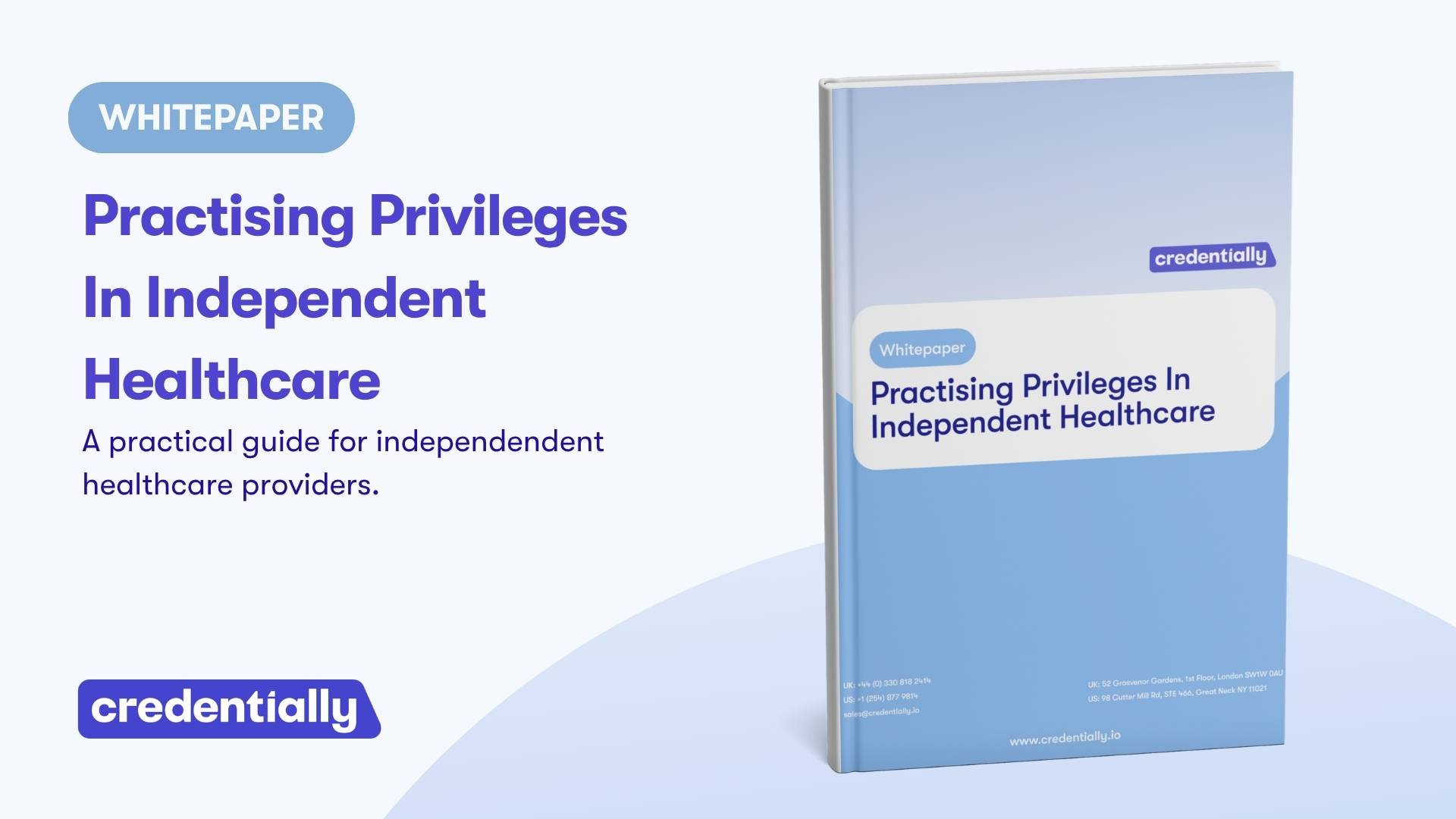
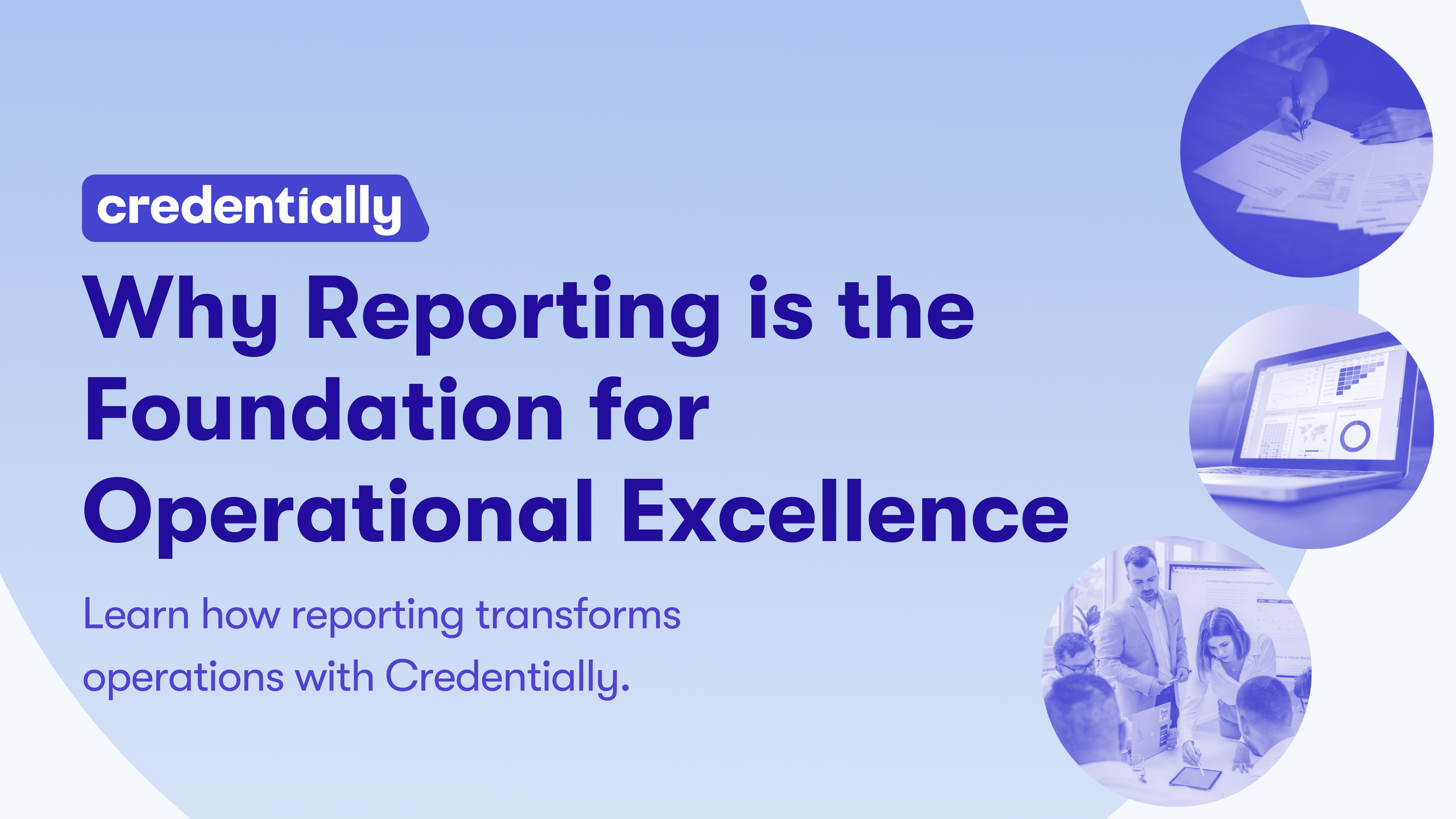
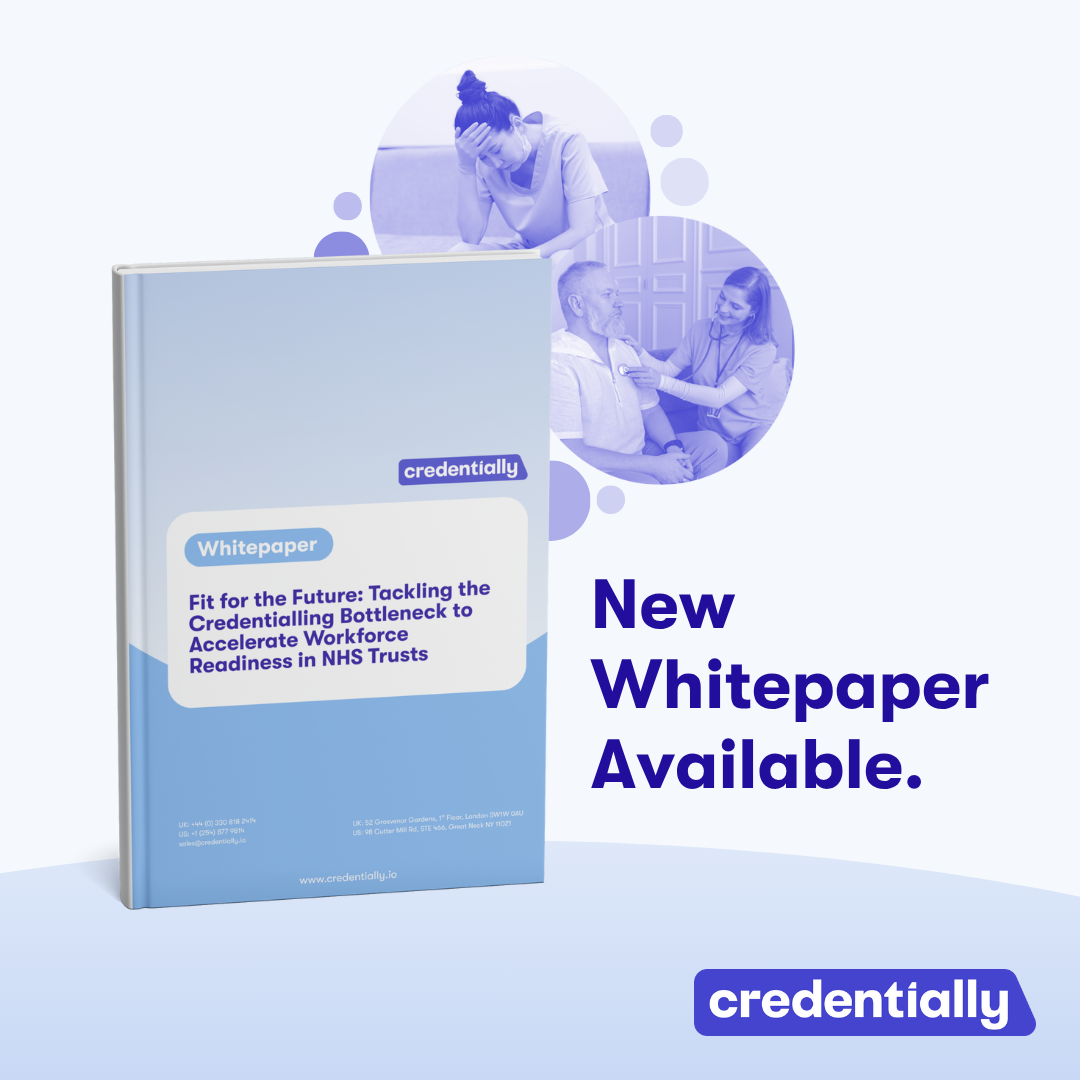
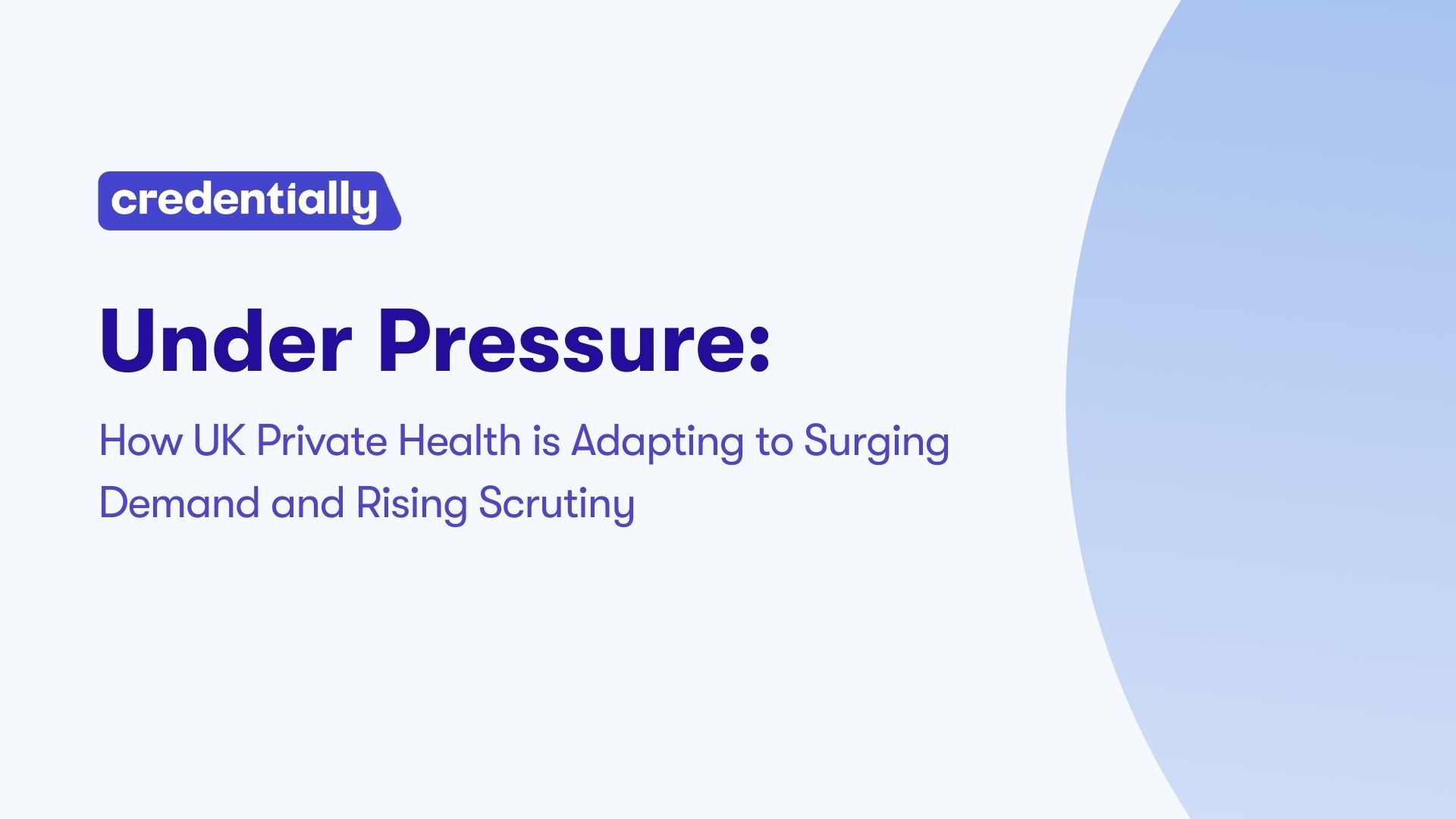
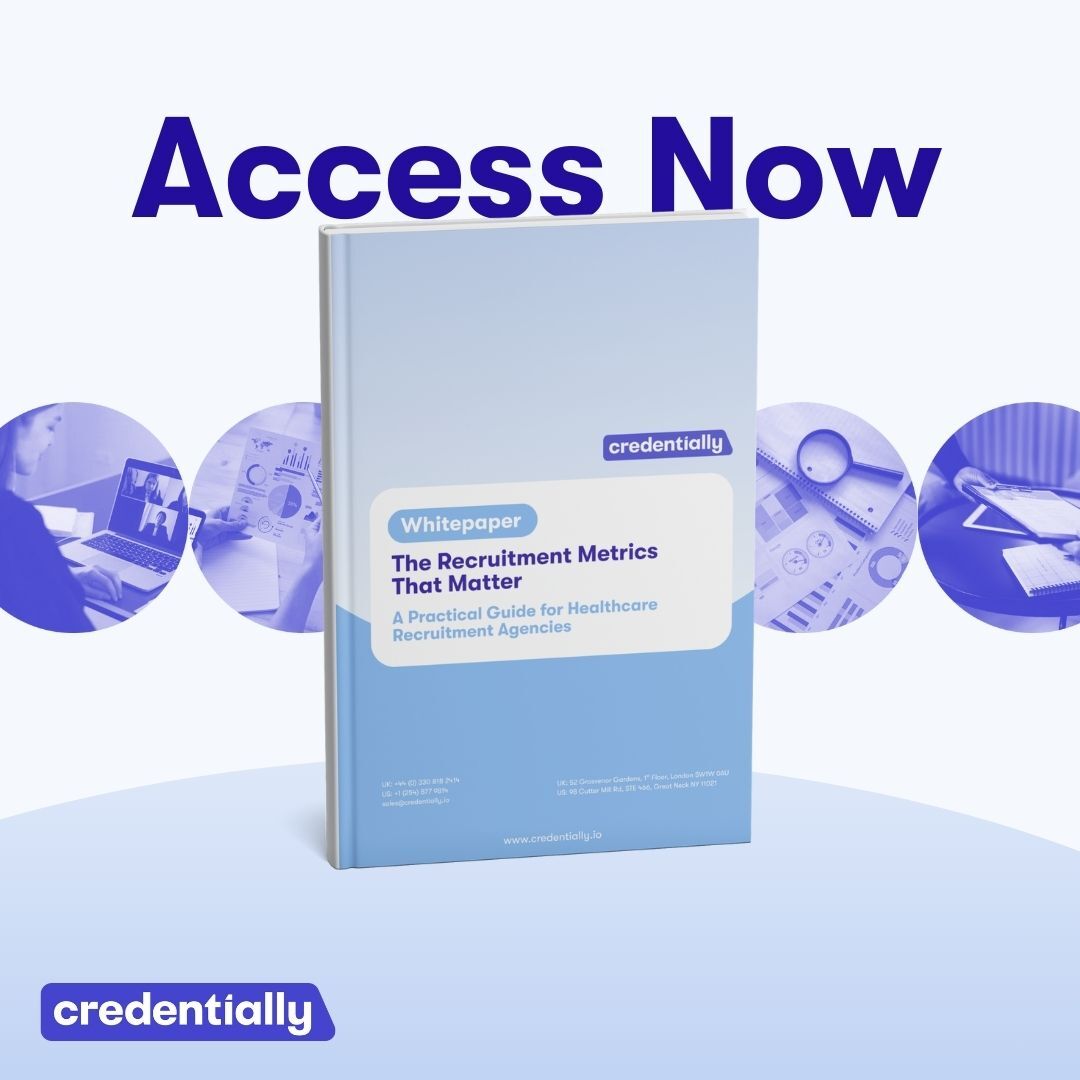
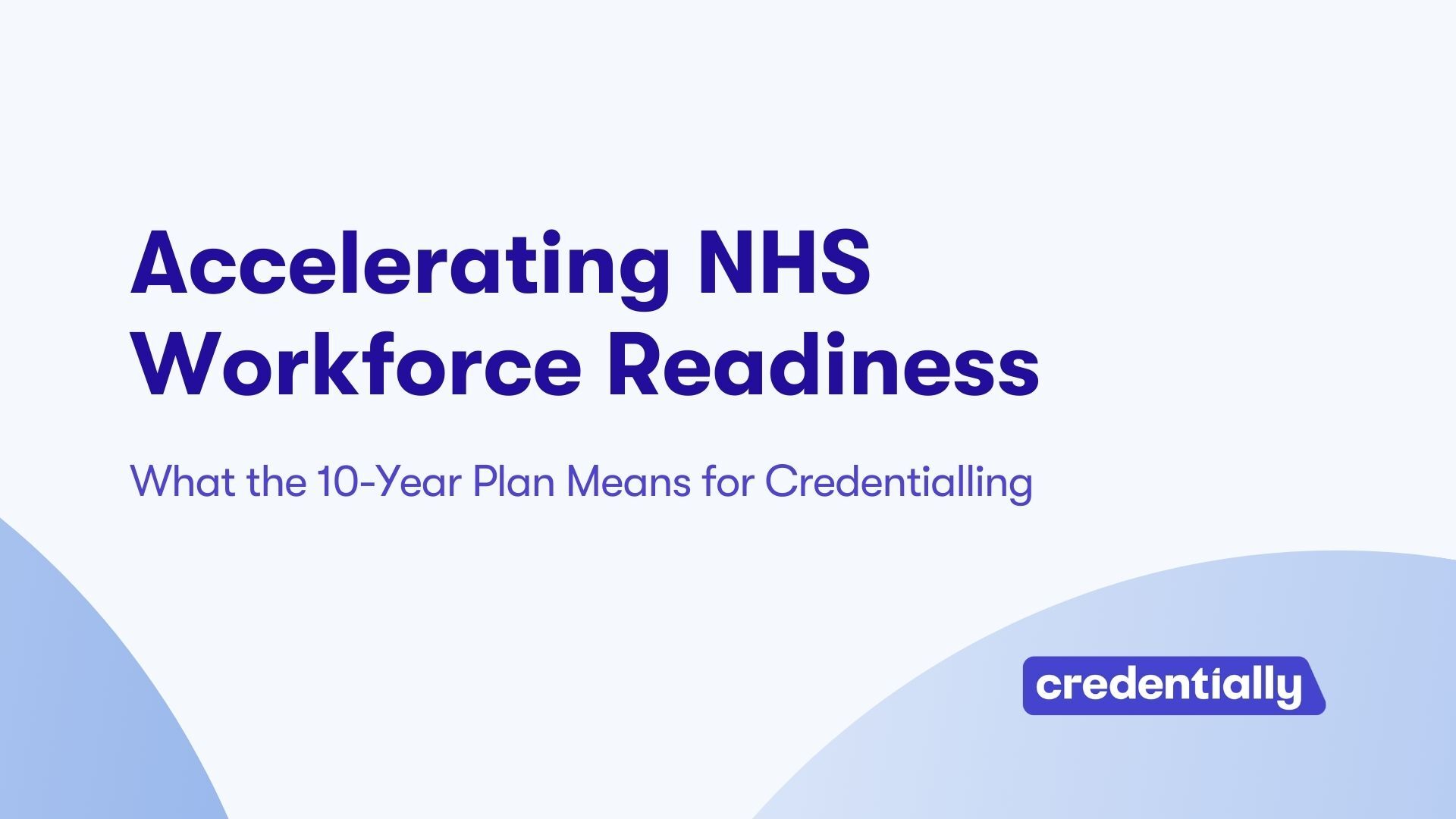
.jpg)
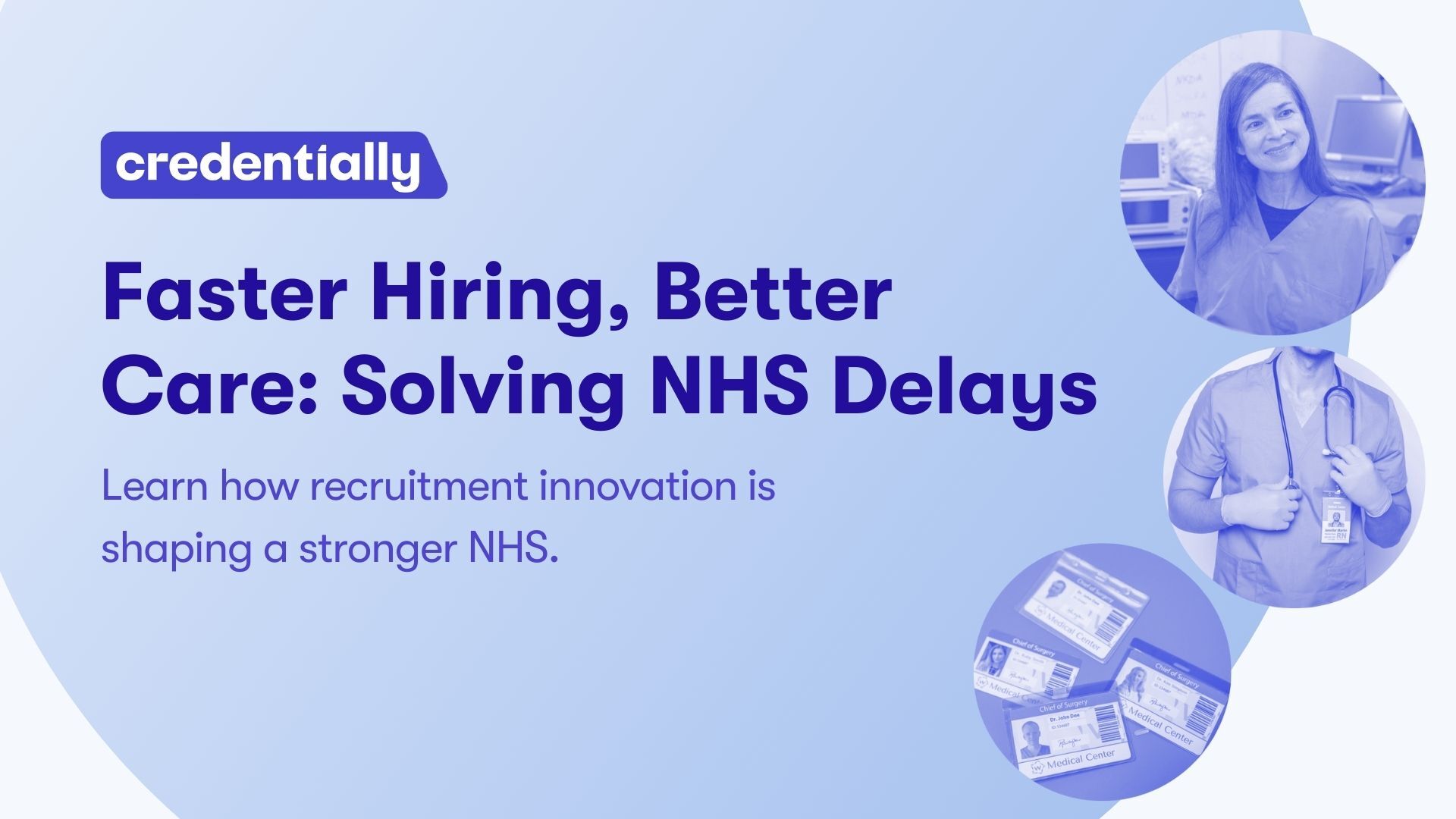
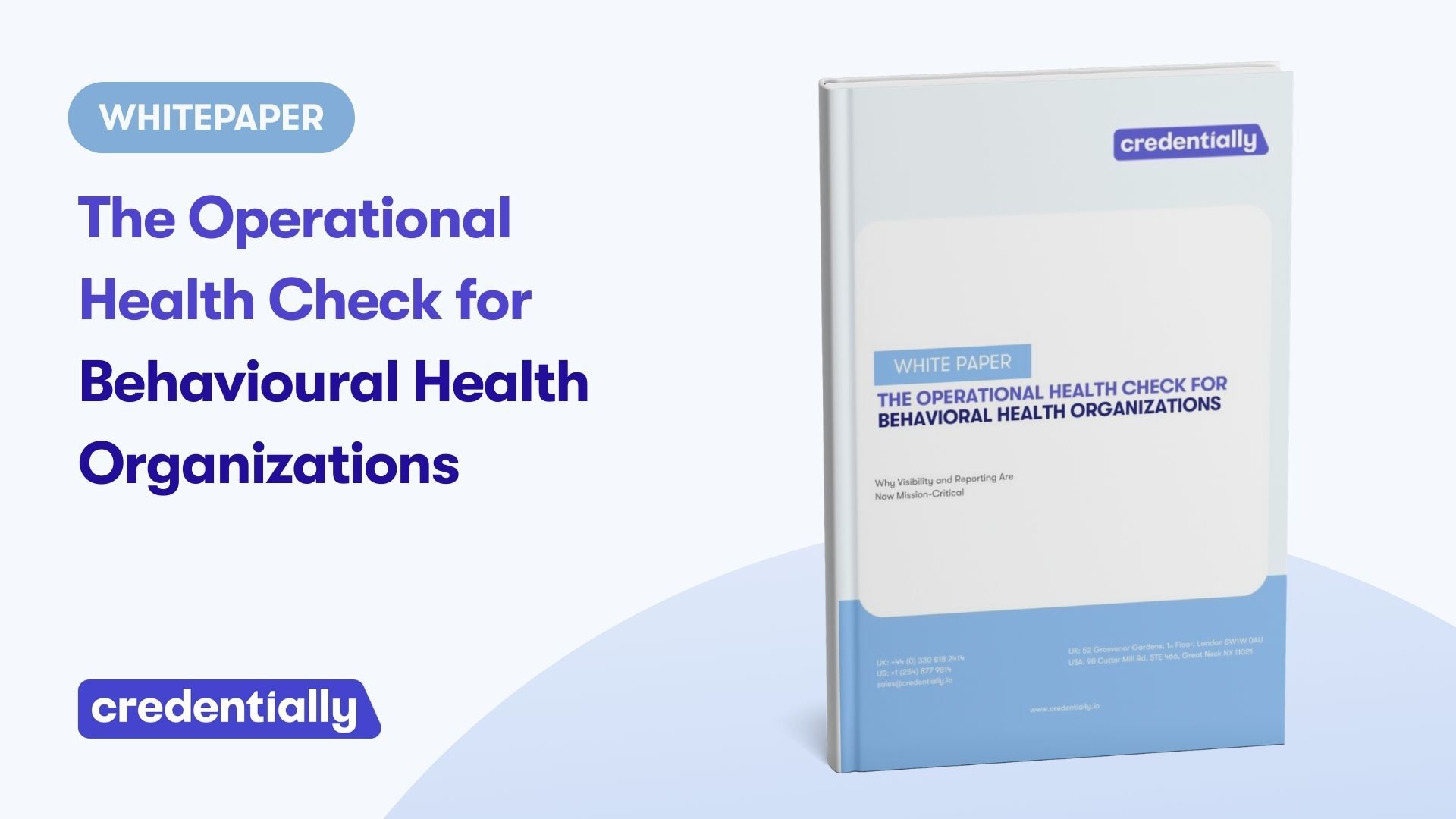
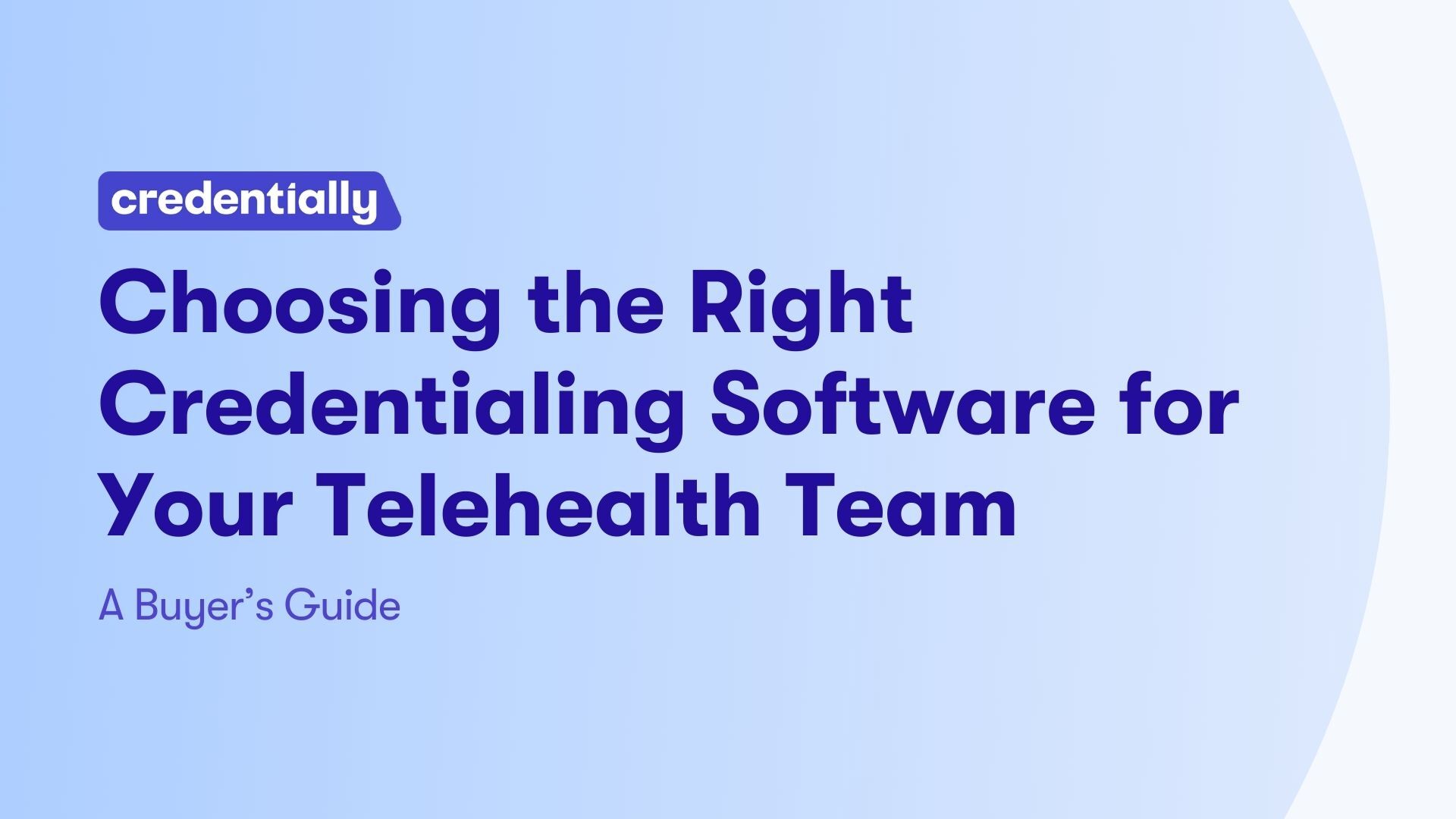
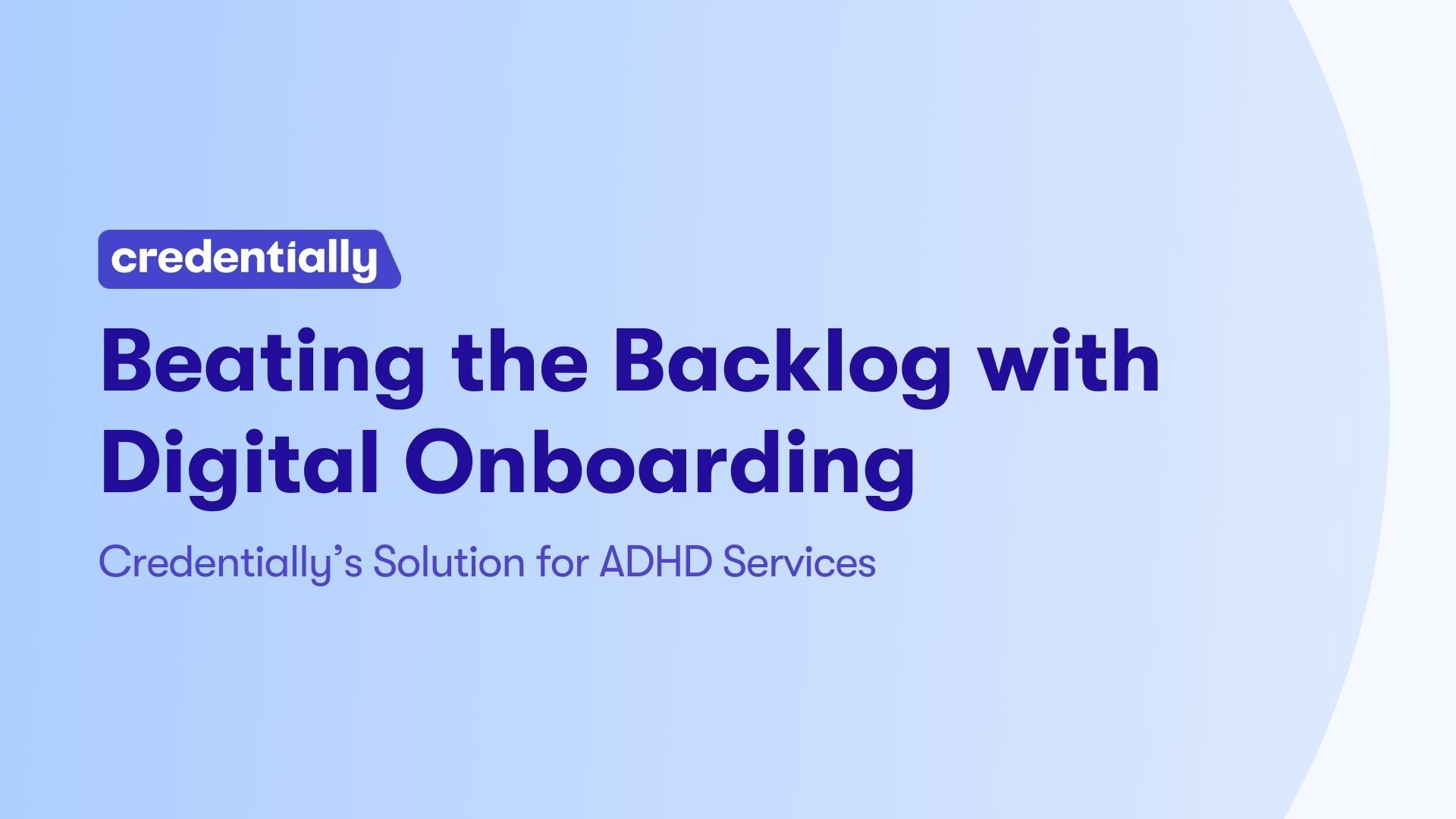
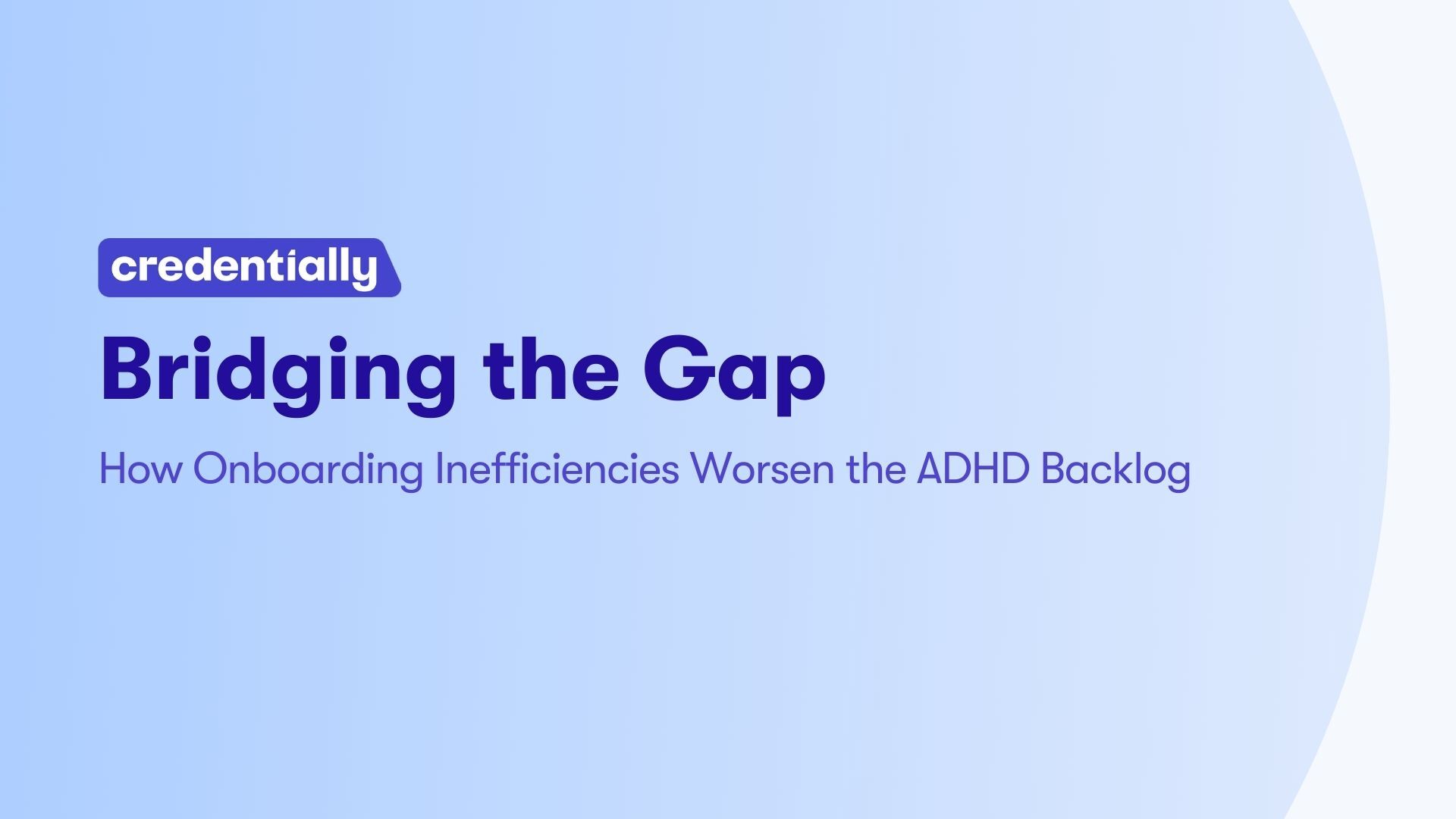
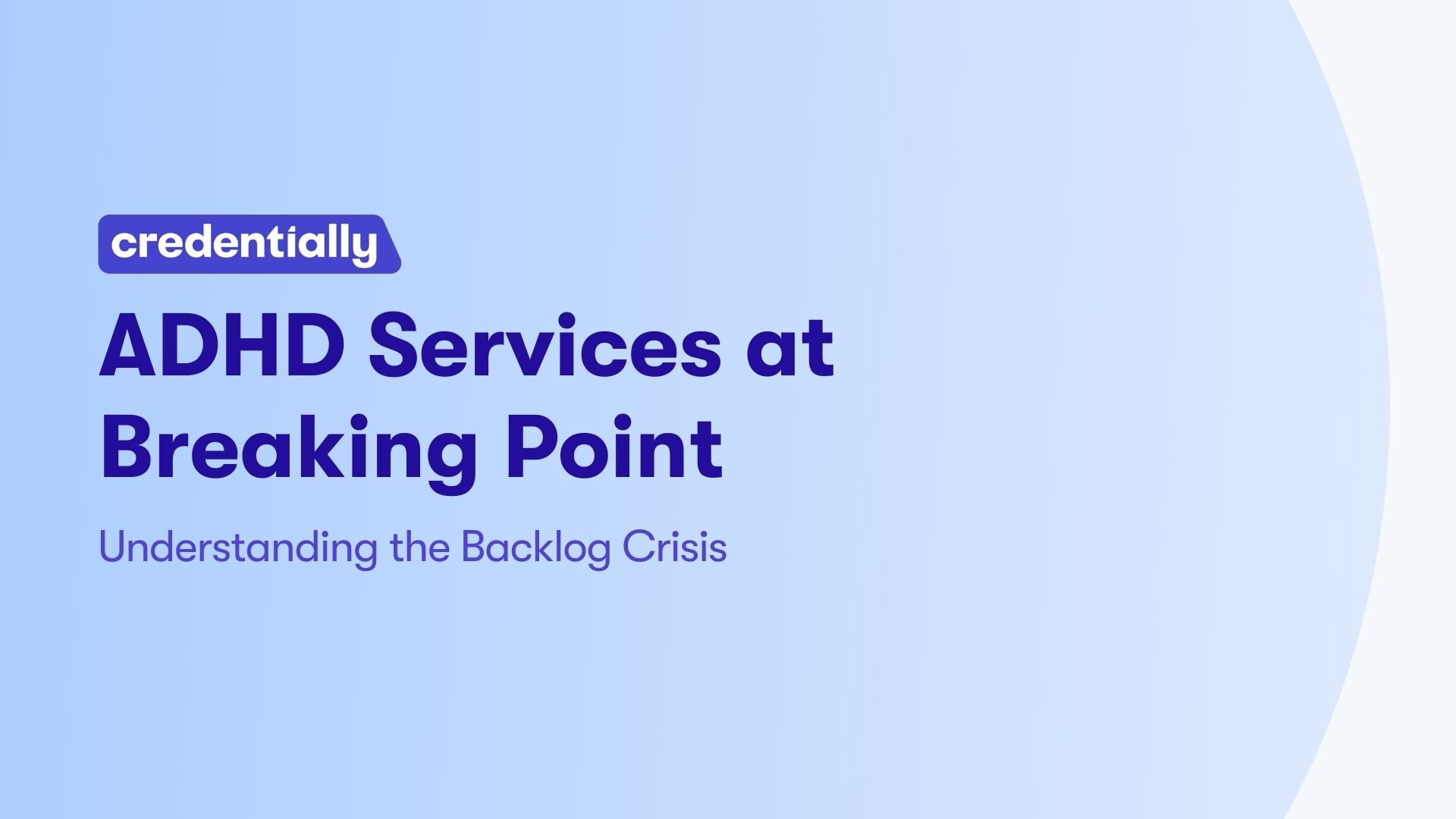
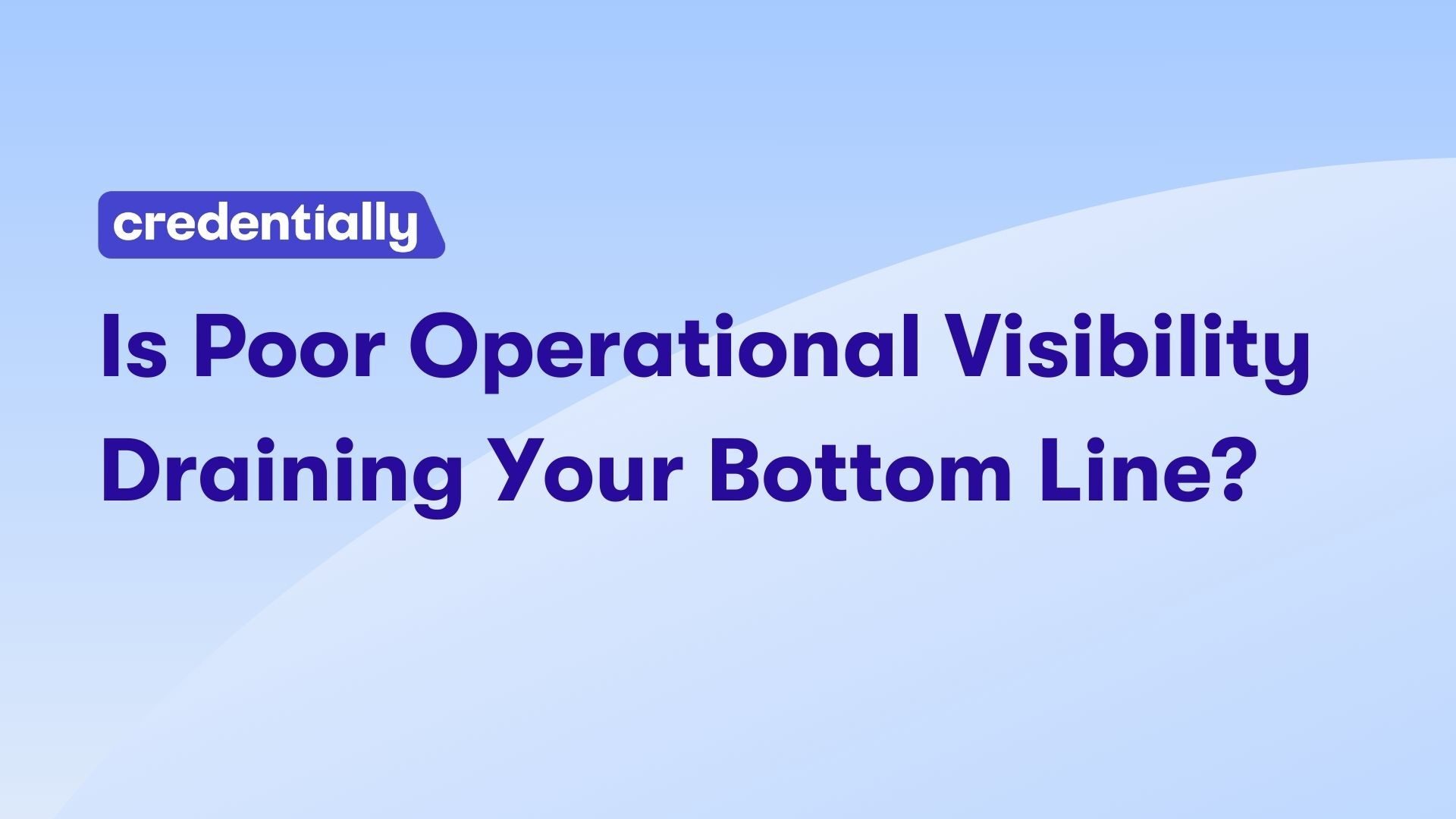
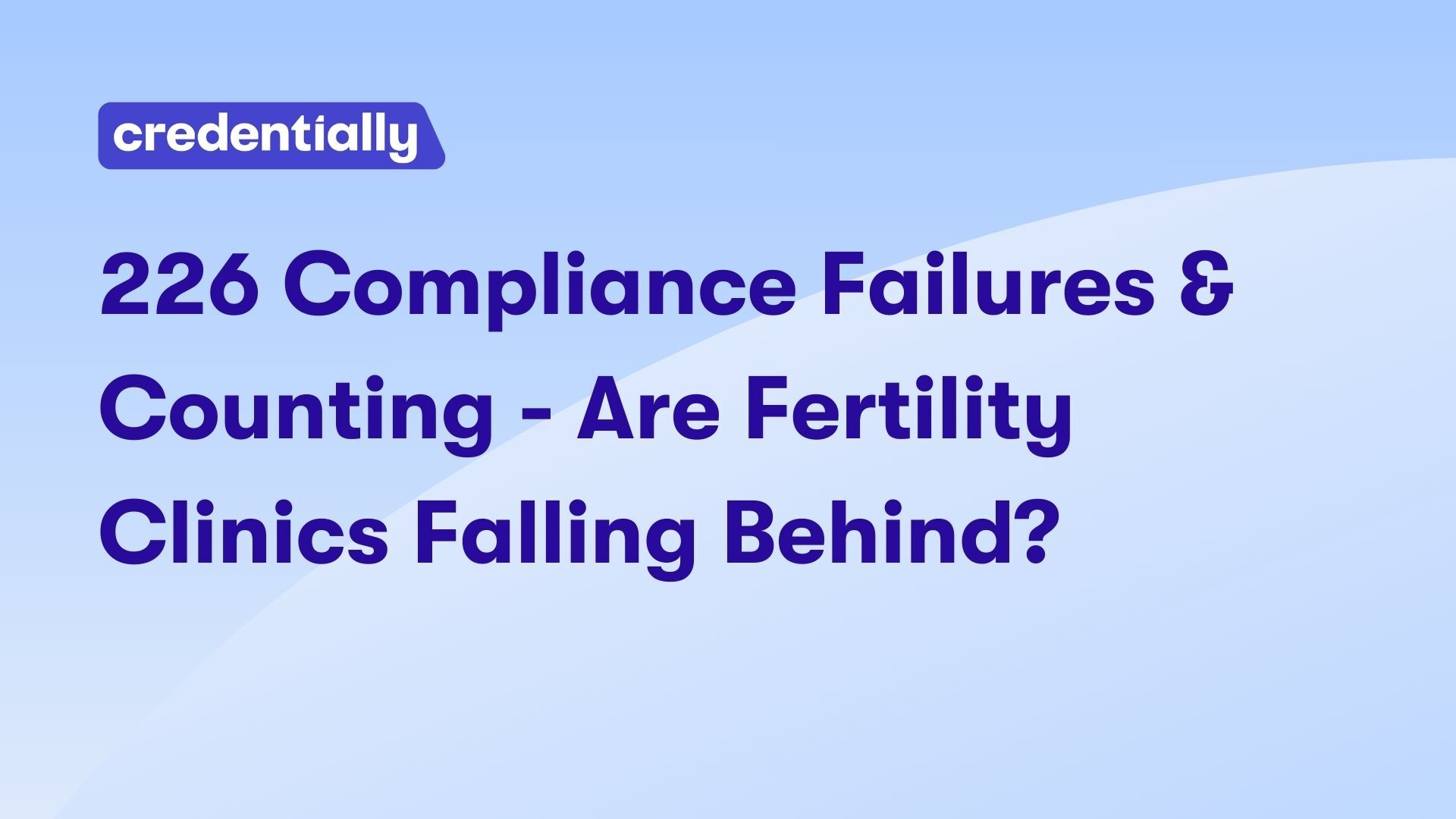

































.jpeg)







.jpeg)








.jpeg)














.jpeg)













.svg)